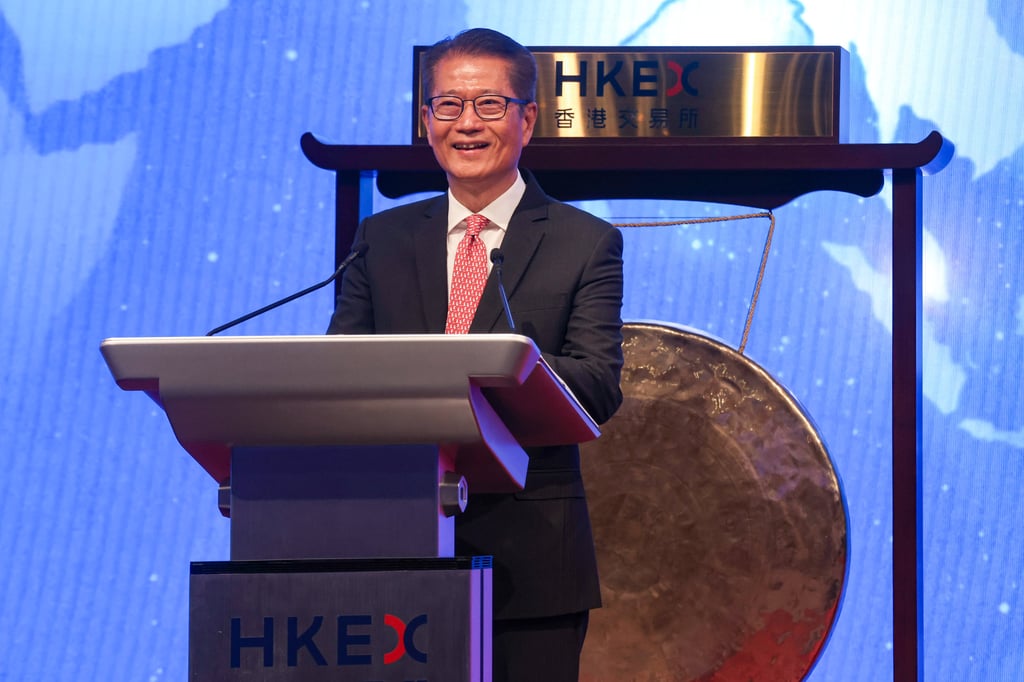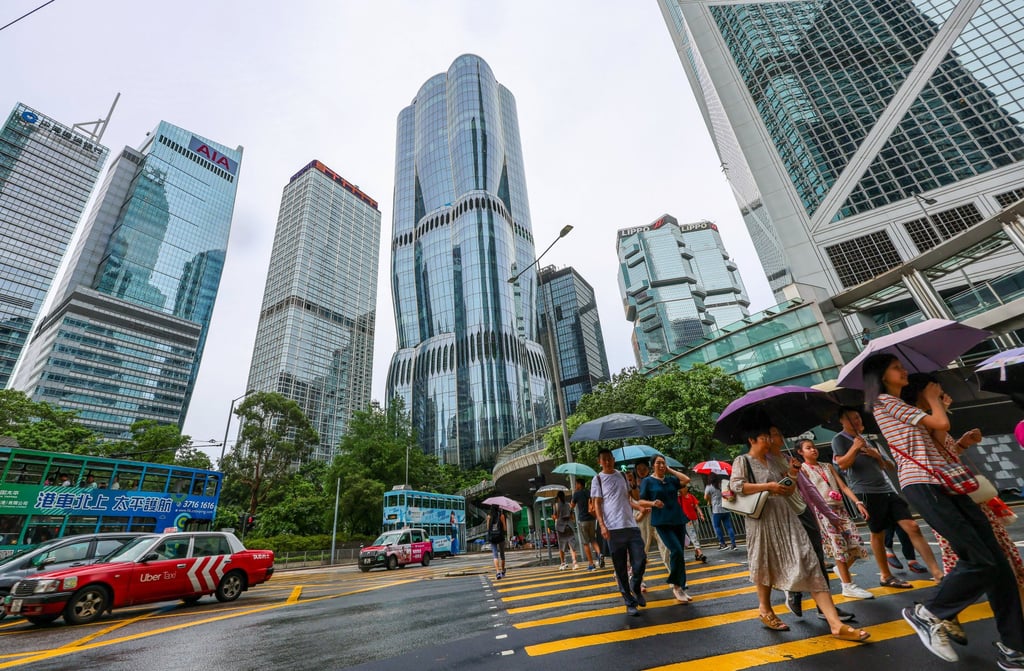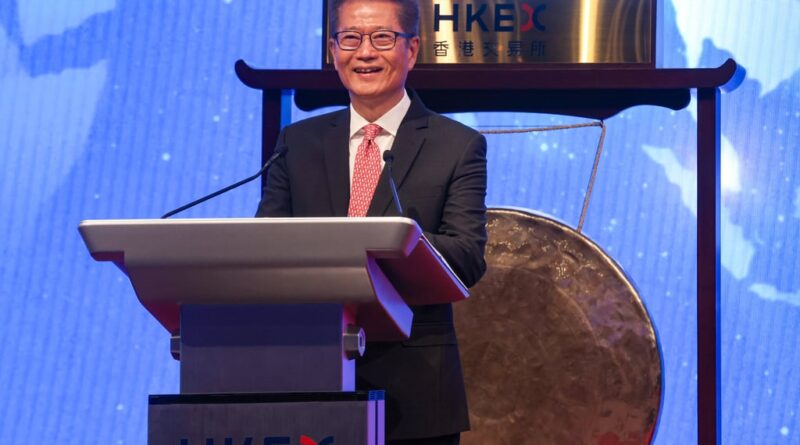Hong Kong must be ‘3 centers, one region’ as stated in China’s third plenum: Paul Chan
Chan said the decision refers to the institutional benefits of Hong Kong’s “one country, two systems” to consolidate and enhance the city’s position as an international financial, shipping and trade hub.
These three institutions would focus their attention while supporting each other, with the growth of innovation and technology, trade and shipping industries that stimulate the demand for financial services and products.
The port connects Hong Kong and Macau with nine cities in Guangdong province, Beijing’s plan to turn the region into an economic hub.
In his blog post, Chan said Hong Kong needs to have greater market depth as a financial center, offer a wider range of products and services, and conduct more negotiations with different regions to expand its financial resources.
“The financial market is connected to the mainland and the world, and can continue to play the role of ‘test bed’ and ‘firewall’ in the process of China’s deep financial development, helping the country to promote to unlock higher levels. from the financial sector,” he said.
The city must also fully promote the role of the foreign renminbi trading center to promote the international yuan.

As a business center, Hong Kong should help large enterprises to go global in their production and supply chain, acting as a one-stop shop that provides services from supply chain management to goods to expert discussions, Chan said.
“Especially when many national enterprises seek international development and establish production lines overseas to better serve the global market, this will create new needs for business services, to bring great opportunities in Hong Kong,” he explained.
The plan called for Hong Kong to strengthen its position as a world shipping center through tax incentives and innovation.
The third plenum decision document also highlighted the strength of Hong Kong as a talent center with many top universities and a society that combines Chinese and Western cultures.
Chan said the government’s various talent projects have attracted more than 340,000 applicants to the city so far from the end of 2022.
Of these, 210,000 were accepted and 140,000 successful applicants had already arrived in the city.
“Additional levels of quality brought about by the active investment process will enable us to retain and utilize this talent effectively,” he said.
Chan said he is hopeful that Hong Kong will attract more international talent to its shores, as long as the government has “a firm goal and clear thinking” and continues to improve policies and support. which lives for the development of such talent.
Although the international political and economic environment was complex and unstable, Hong Kong would strive to make full use of its “great potential” as a city governed under one country, two system principles.

Experts say the message of placing three centers first among the eight listed in Beijing’s 14th five-year plan shows the importance of financial, trade and shipping policy to Hong Kong.
Lau Siu-kai, a consultant of the Chinese Association of Hong Kong and Macau Studies, said that being a center of talent is also important as Hong Kong and the mainland were determined to promote new forces of quality production.
“Beijing expects Hong Kong to become a talent pool for the country and hopes that Hong Kong can attract top talent from the US and other Western countries,” he said.
“Many Chinese scientists and scholars are leaving the West for political and security reasons, and Hong Kong may be the destination for some of them.”
Business expert Terence Chong Tai-leung said that while Hong Kong has always enjoyed a strong position as a financial center, the city has played a major role in developing a trade and shipping center.
“Business needs to go two ways, and we depend on the process of [the mainland’s] imports and exports. “Since we are now a tariff-free port, we cannot reduce taxes to be competitive,” he said.
Chong noted that increasing insurance options for the maritime industry could be a way to grow the city as a shipping hub.
#Hong #Kong #centers #region #stated #Chinas #plenum #Paul #Chan
